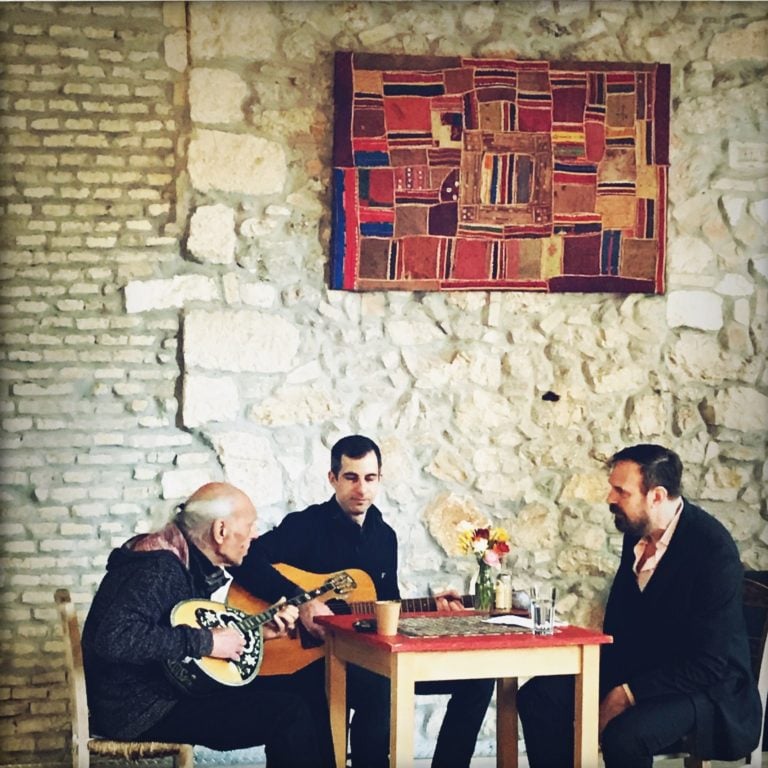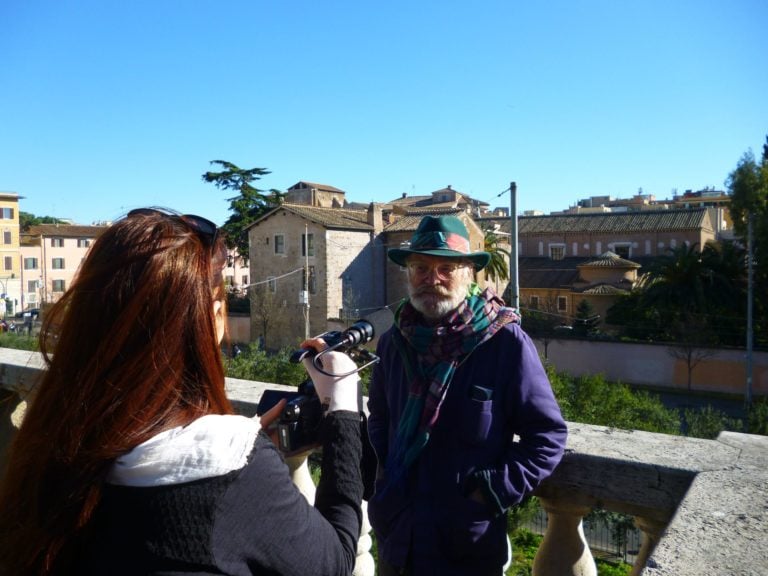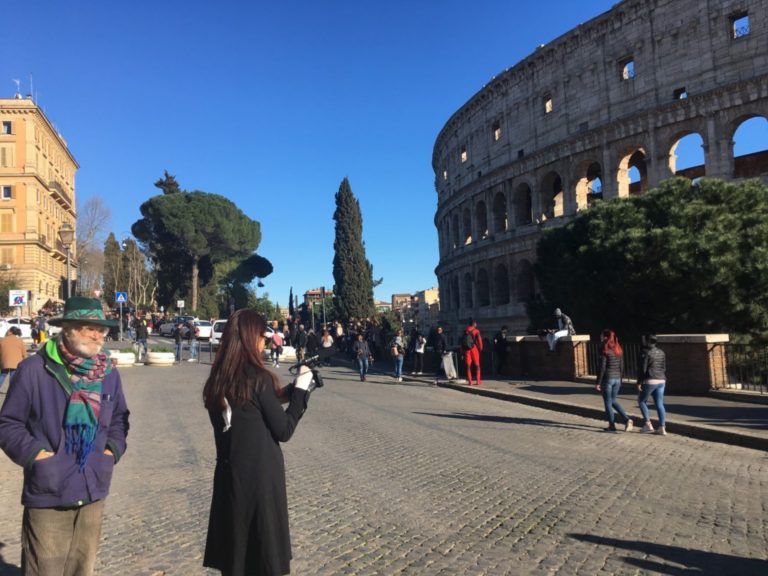Sydney-based filmmaker Mary Zournazi’s upcoming documentary ‘Rembetika Blues’ traverses Australia, Egypt, Greece, Italy, the US and UK to chronicle how the haunting Greek rebel music become the soundtrack for forced migration.
Rembetika was borne out of the 1922 catastrophe of Smyrna which led to the migration of 2 million Greek refugees from Asia Minor who fled to Greece, Russia, Australia and the United States.
Zournazi’s grandmother was one of those refugees and it wasn’t until she began researching the events surrounding Smyrna that it became apparent that she was unaware of this significant period that shaped modern Greece.
“It’s a whole history that is not part of history,” she explained to Neos Kosmos. “I knew I had a grandmother who fled but I didn’t really know the detail of it. I had never really investigated it and had never seen the footage until I saw the archive of the whole city burning and it’s horrific. There is one scene of a well-dressed Greek family on a rocking boat trying to flee on a ship. This is the same scene we see with refugees today, just 100 years back, walking through the countryside to get across land. That is the most shocking part, that history keeps repeating itself.”
While Zournazi’s documentary explores the Smyrna disaster the film is not just a story of a forgotten war. It is a parallel story of forced migration and how almost 100 years apart Rembetika has become not just the sound track of Greek refugees from Smyrna but also Syrian refugees to Greece.
READ MORE: ‘Dogs of Democracy’

“I follow a Syrian musician named Salman whose brought his music from Syria,” Zournazi. “I so was taken with his incredible voice and how he became involved with rembetika which he developed in Greece. So that’s why my film is really about stories around rembetika music and stories about migration. I’m looking at how the music tells stories about people’s lives, both pain and suffering. Both in Greece, in terms of when rembetika started and also how people have travelled and how the music travels with them.”
Rembetika has its roots in the underground scene of Greece where it was played in the hashish dens of Pireaus and Thessaloniki. The first half of rembetika, rebet translates to “unruly” in Turkish and while interviewing Nick Cave’s Greek Australian drummer Jim Sclavunos, Zournazi explores how rembetika lyrics and sound are universal.
“That’s part of the fascination of rembetika for me,” Sclavunos explains in the documentary trailer. “They are singing about these very real things; the roughness of the music matches the roughness of the experience that is being described. The same way you would really hear that being suited to some old blues or some early Velvet Underground.”
For Zournazi the song that encapsulates the ‘Greek Blues’ is Marika Papagika’s song Smyrneika Minore which she recorded in 1919.
READ MORE: The passion of rembetika

Melbourne-born Greek rembetika artist K. Bhta (Konstantínos Vī́ta) is the film’s composer, and as well as writing several original tracks for the film, his updated version of Smyrneika Minore is also included in the documentary. Upon first listen it’s hard not to be moved by K. Bhta’s haunting, dark chilling rendition and Zournazi feels this song in particular is an example of rembetika’s power and its ability to pierce the soul.
“I just think ‘wow’! It’s chilling,” she exclaims. “The first time I heard this music I got goose bumps. It was like I had lived it somehow. What it triggered for me is a history and a memory. When you hear some of that early stuff it’s chilling, fantastic and it moves you. The history and the music itself, it’s in my DNA, that is something that I am fascinated to tell but I’m also trying to say that these stories that are 100 years ago still live. This forced migration and refugees, it doesn’t stop when people arrive on somebody’s shores, it actually continues through generations and this is what is also important for me.”
Zournazi’s biggest filming coup occurred in Syros after capturing the last ever footage of one of Greece’s greatest composer and bouzouki players playing with Sclavunos, who passed away earlier this year at the age of 72.
READ MORE: Diatribe: Variations on a (musical) theme

“I shot Stelios Vamvakaris the son of Marcos Vamvakaris who is the famous patriarch of Rembetika, a few weeks before he died,” she revealed. “Stelios is an amazing musician. I have the last intimate footage of him and he is wonderful and what he has to say is extraordinary. Something else I talk about in the film is the relationship of Rembetika to American Blues. That is why I called the film Rembetika Blues. Music brings people together and this film is about investigating the music to tell a more universal story which is what makes us human.”
‘Rembetika Blues’ will be released in 2020 with plans for an international release. To support the making of this documentary visit the website, where you can also view the stunning trailer.









